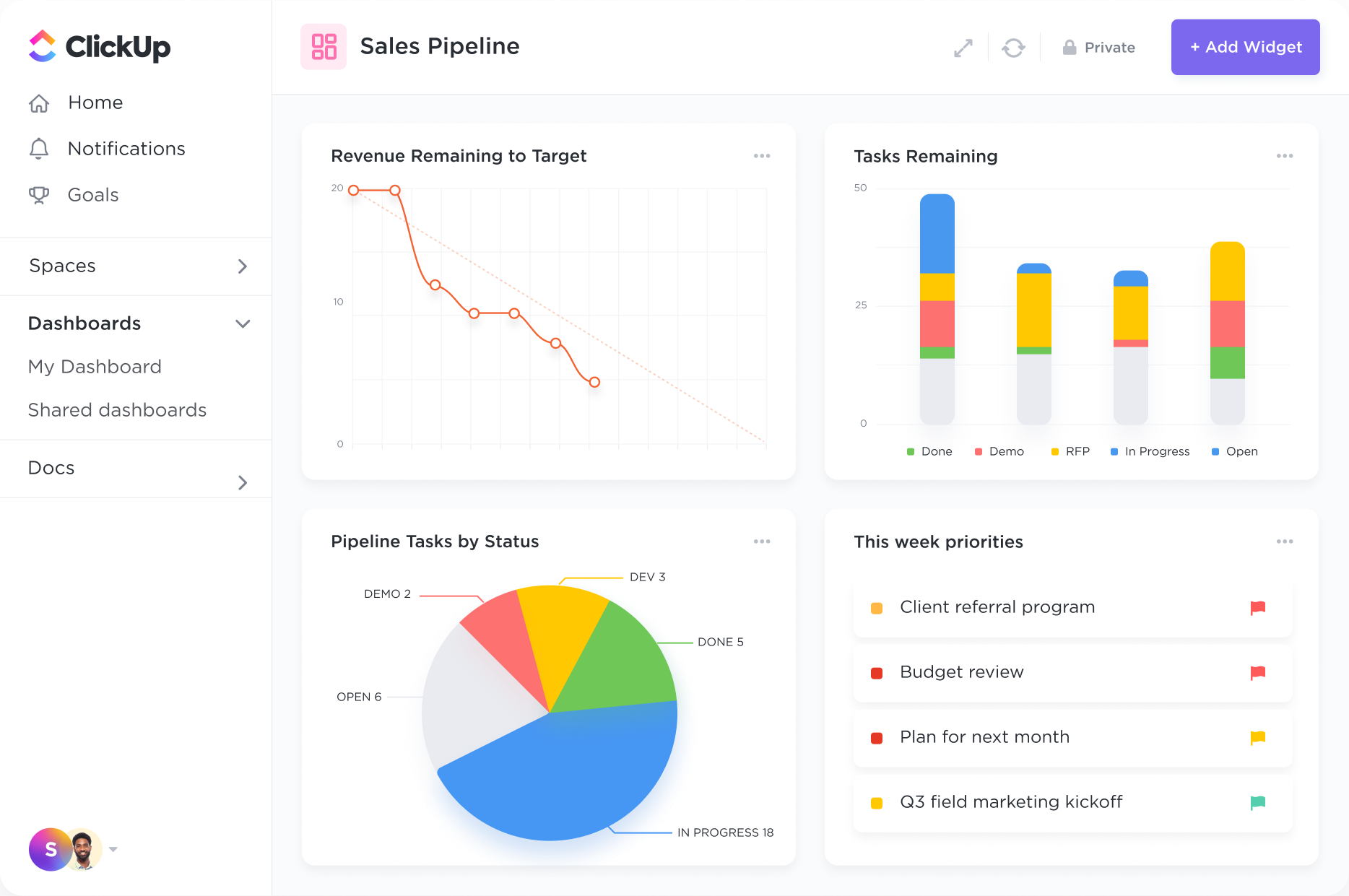CRM Views
See client relationships at a glance.
Manage everything from sales pipelines, customer engagement, and orders with ClickUp's 10+ highly flexible views. Easily track and manage your accounts on a List, Kanban Board, Table view, and more.

Gantt Charts
Revolutionize how transportation companies manage their customer relationships with ClickUp's customizable CRM system. Streamline communication, track leads, and enhance client interactions all in one place. Experience the power of ClickUp to drive efficiency and boost productivity for your transportation business today.
Free forever. No credit card.
CRM Views
Manage everything from sales pipelines, customer engagement, and orders with ClickUp's 10+ highly flexible views. Easily track and manage your accounts on a List, Kanban Board, Table view, and more.

Performance Dashboards
Create high-level views to monitor customer lifetime value, average deal sizes, and more. ClickUp's 50+ Dashboard widgets make it easy to visualize all of your customer data in one place.

A CRM for transportation companies can help in tracking and managing the entire fleet efficiently. It provides real-time visibility into vehicle locations, maintenance schedules, driver assignments, and fuel consumption. This optimization leads to better resource utilization and cost savings.
Effective communication with customers regarding shipment status, delays, or any other updates is crucial in the transportation industry. A CRM centralizes all customer interactions, including emails, calls, and messages, ensuring prompt responses and improved customer satisfaction.
CRMs can integrate with GPS and mapping systems to assist in route planning and optimization. By analyzing traffic patterns, weather conditions, and delivery deadlines, transportation companies can ensure timely deliveries, reduce fuel consumption, and enhance overall efficiency.
Transportation companies deal with a large volume of customers and contracts. A CRM can help in organizing customer information, contract details, pricing agreements, and service level agreements in one central location. This ensures that all client details are easily accessible and contracts are managed effectively.
CRMs offer robust reporting and analytics tools that allow transportation companies to track key performance metrics such as on-time delivery rates, driver performance, customer satisfaction scores, and revenue per route. These insights help in identifying areas for improvement and making data-driven decisions.
Key features of CRM software that can benefit transportation companies include efficient scheduling and dispatching, route optimization, real-time tracking of vehicles and shipments, customer communication tools, and comprehensive reporting for performance analysis and improvement.
Yes, CRM software can help transportation companies manage their fleet by tracking shipments, optimizing routes, scheduling maintenance, and monitoring vehicle performance for increased efficiency and customer satisfaction.
CRM software can improve customer satisfaction and retention for transportation companies by enabling personalized communication, efficient issue resolution, proactive service reminders, and streamlined booking processes.